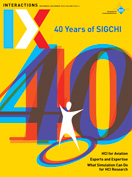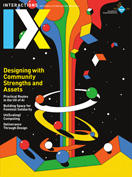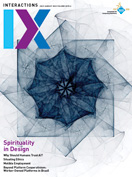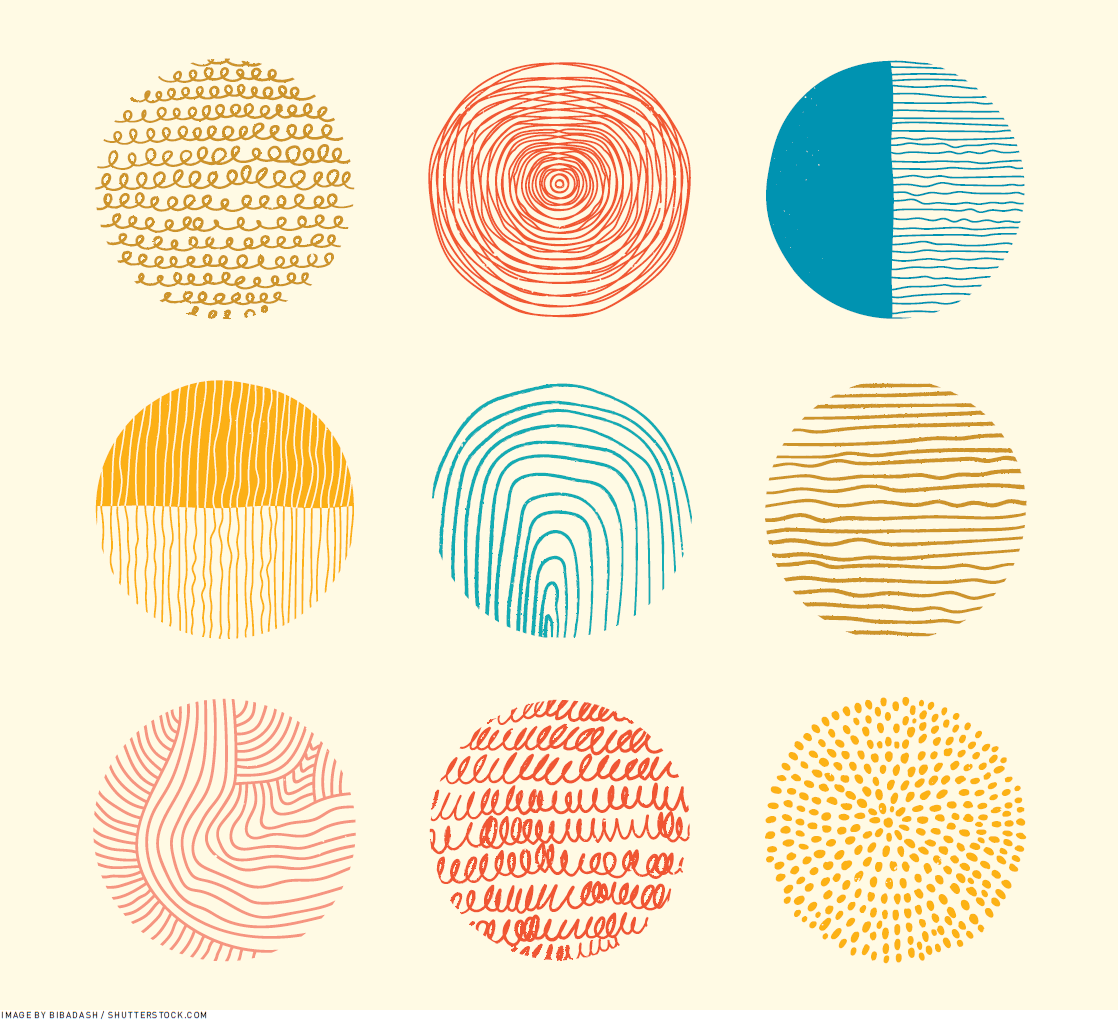Authors:
Elizabeth M. Gerber
Do you like receiving awards? If so, you are not alone. Most of us appreciate being recognized, even if it's a bit awkward to receive an award that would not have been possible without the help of many collaborators.
→ Applying human-computer interaction research to social impact should be commonplace.
→ Let's build sociotechnical systems to provide education, work, and healthcare to all.
→ We need a new business model, new intergovernmental organizations, and new education practices.
As such, it may come as a surprise when I tell you that I want to get rid of the SIGCHI Social Impact Award. Yes, that's what I said: Let's get rid of the SIGCHI Social Impact Award.
I want to get rid of it because I want us to create a world in which applying human-computer interaction research to social impact is not unique and therefore doesn't deserve special recognition. My vision is to make social impact as normal as saying hi to a colleague in the hallway.
Everyone will be taught to creatively and tirelessly work with their community to tackle pressing social needs, prioritizing social and environmental well-being over individual and corporate wealth. Work will not be driven exclusively by the bottom line.
To realize this vision, I need your help. We need to start a revolution that puts people and the planet first, sustainability over wealth and fame.
Every person, plant, and animal will have access to enough resources to live dignified lives free from fear. All people will have access to work, food, shelter, education, and healthcare.
Sociotechnical systems will augment the best of humanity—our creativity, connection, and curiosity in concert with the beauty, diversity, and wealth of the natural world. We will use HCI to empower and connect every person and living thing on this planet.
It will transform entire systems of education, governance, healthcare, work, and more.
So let's start with the people.
Over the past decade, computing has transformed nearly every aspect of our lives—from profound actions like repairing human hearts, falling in love, and fighting for democracy to more everyday ones like playing video games, food delivery, or reserving a place to stay.
Ten percent of the population live in extreme poverty and struggle to fulfill the most basic needs like health, education, and access to food, water, and sanitation. The economic fallout from the pandemic suggests that the percentage of people living in extreme poverty will only increase.
Let's build sociotechnical systems to provide education, work, and healthcare to all.
What might that look like?
Let's start with education. Worldwide, nearly one-fifth of school-age children are not in school and 750 million adults (two-thirds of whom are women) are illiterate. Let's figure out how to use systems to provide free, equitable, quality education to everyone.
Specifically, we could build systems to provide safe, inclusive, and effective learning environments to teach peace and nonviolence, human rights, gender equality, sustainable development, and global citizenship. We could build systems to increase the supply of qualified teachers through international cooperation for teacher training throughout the world.
Next, let's look at work. In our current global economic crisis, 200 million people are unemployed, with women and youth workers the hardest hit. Let's figure out how to use sociotechnical systems to provide full and productive employment.
Specifically through data sharing and online training, we can eliminate the 23 percent gender pay gap, ensuring equal pay for work of equal value. Whether working in an office or working on a farm, let's make sure the environment is safe and secure—especially for differently abled people and precarious employment. Let's design systems to help people save money so they don't live paycheck to paycheck. And let's empower the 25 million people who are still living in slavery.
And then let's look at healthcare. More than 40 percent of all countries have fewer than 10 medical doctors per 10,000 people. Let's build sociotechnical systems to provide access to safe, affordable medical prevention and treatment; universal access to sexual and reproductive healthcare services, including family planning; and support research and development of vaccines and medicines to better manage this global pandemic.
Let's also consider the environment. In addition to using sociotechnical systems to empower all people, let's build computational systems to empower the planet.
The natural world is critical to our survival. Yet it continues to deteriorate, and more rapidly than ever. Human social activity has altered the earth. One million animal and plant species are threatened with extinction. We are squeezing nature into an ever-smaller corner of the planet.
Let's design systems to mobilize financial resources to sustain biodiversity, combat poaching and trafficking of protected species, and increase the capacity of local communities to pursue sustainable livelihoods.
Let's design systems to help us optimize agriculture production so we do not deforest land and destroy animal habitats. Let's use these systems to move billions of people away from fossil fuel dependence and toward renewable energy and to promote responsible consumption and production through fix and reuse.
In addition to using sociotechnical systems to empower all people, let's build computational systems to empower the planet.
Let's design systems to regularly remind us of the consequences of our actions on the planet.
- How might polar bears tweet about their fears of becoming extinct during their lifetime because of global warming when we choose to drive instead of bike to work?
- How might dolphins blog about their struggles to breathe and reproduce due to the oil spills in the ocean?
- How might the melting glaciers use Instagram to remind us of the rising sea levels that will take over the land?
I've given just you a small glimpse into the potential that systems will augment the best of humanity with the natural world.
On our way to realising this revolution we must address three glaring obstacles.
We need a new business model, new intergovernmental organizations, and new education practices.
Let's start with the business model.
For this to work, we need to place monetary value on life rather than on attention. This business model harms all of us.
Second, we need an intergovernmental organization that maintains peace and security, and achieves international cooperation and harmonization among its members. As World War II was about to end in 1945, nations were in ruins and the world wanted peace. Countries gathered to create the United Nations that would prevent another world war. Today, the U.N. sets sustainable development goals, promotes climate action to limit global warming, and includes specialized agencies such as the World Health Organization to address international public health. Similarly, we need a specialized agency, the World Computing Organization, to lead social computing efforts internationally, attaining the highest level of quality, innovation, and safety to augment the best of humanity and the wealth of the natural world.
Third, we need to reeducate. Our current education system must change. We do not adequately teach about social systems and the planet in our curricula.
From birth, we are social, organic beings and yet we rarely require our students to study the social sciences, ecology, or other dynamic systems. Specifically, we could integrate the teaching of ethics, systems thinking, environmental studies, and sociology into our classes. We can no longer teach students to design a system for a single individual, but rather for a multitude of stakeholders who have conflicting interests. We need to teach about the role of power in society. Power is to society as gravity is to physics. So why don't we talk more about it?
Educating ourselves and others about power is something we can start doing right now.
So what's the call to action? All of us are responsible for starting the revolution in the everyday decisions we make—as researchers, as consumers, and as global citizens. Together, we need to start talking about the role of technology in our social and environmental systems and building systems to support this reality. There has never been a time of greater promise or peril.
It's going to take hard work every single day. But if each of us do a little part, we will change the world. We can't wait for someone else to do it; we have to do it ourselves.
When it becomes natural for all of us to be doing this work, then we'll no longer need this award to recognize social impact.
Elizabeth M. Gerber is a professor at Northwestern University's Segal Design Institute in the McCormick School of Engineering and Applied Science and in the School of Communication, codirector of the Center for Human-Computer Interaction + Design, faculty founder of Design for America, and a SIGCHI Social Impact Award recipient. [email protected]
Copyright held by author. publication rights licensed to ACM.
The Digital Library is published by the Association for Computing Machinery. Copyright © 2022 ACM, Inc.







Post Comment
No Comments Found